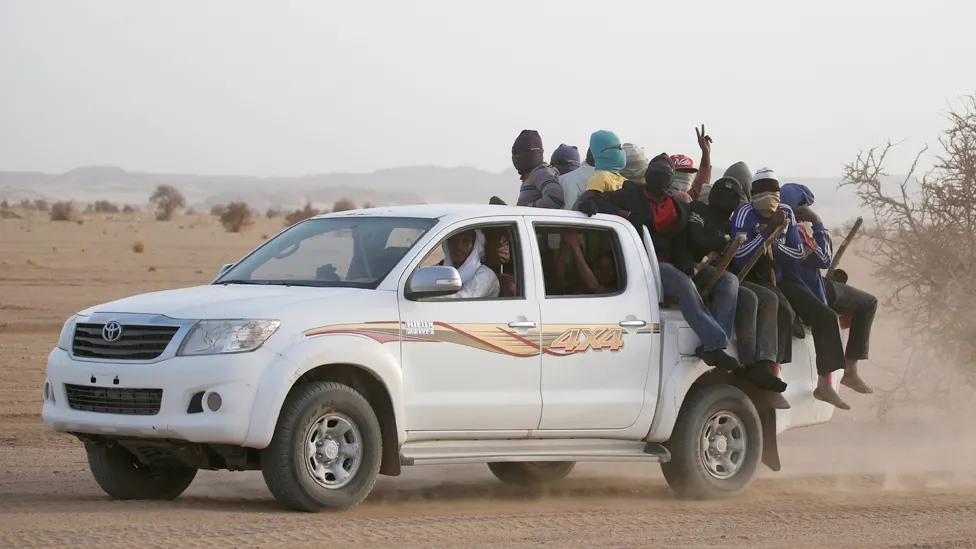THE recent lifting of Niger’s ban on people smuggling has been welcomed by many in Agadez, a city on the edge of the Sahara – a once busy transit point for migrants heading towards North Africa and on to Europe.
“The law was repealed on a Friday, by Sunday, I saw 4×4 cars in Agadez getting ready to resume their trips,” Chehou Azizou told the BBC. He is the founder of Alarme Phone Sahara, an organisation that helps bring migrants stranded in the desert back to safety.
The law was introduced in 2015 – with the backing of the European Union – during a period of high levels of migration to Europe.
At the time, the UN estimated at least 4,000 migrants travelled through Agadez every week without travel documents.
But people in the city have always felt unfairly targeted by it – while migrants may have trekked all the way through Niger to reach Agadez, it was only its residents who seemed to be prosecuted.
“This law always made us uncomfortable. When a migrant arrived in Agadez, as a local I couldn’t welcome them or take them in; if I drove them by bus to take them somewhere else I could be prosecuted,” local councillor Mohamed Agali Zodi told the BBC.
“People who cooked food for migrants were punished, bus drivers both within and outside the city were punished, people lodging migrants were punished.
“People in Agadez were very happy when the law was repealed.”
One of the law’s stated purposes was to ensure the safety of migrants and reduce the number of deaths in the desert. But locals in Agadez and migration specialists say it had unintended consequences.
“When the EU and the former government said the law was for the protection of migrants it made us laugh bitterly,” Mr Azizou said.
“Because by imposing rigorous controls on migration routes, migrants had to avoid the authorities and that led to many deaths and disappearances in the desert. Thousands of people have lost their lives because of this law.”
Berlin-based migration researcher and policy analyst Alia Fakhry agrees.
“Smugglers and migrants were taking secondary, longer and riskier itineraries through the desert to cross borders and avoid police patrols,” she told the BBC.
Niger is going through a period of intense change. Mohamed Bazoum was overthrown as president by his own military guards in July.
The junta that took over accused him of putting the interests of foreign powers, including France and the EU, ahead of Niger’s own. Since the coup, it has kicked out French troops and imposed policies it says are intended to restore the country’s sovereignty.
But the EU says the repeal of the anti-trafficking law in November could cause more deaths in the desert as it believes more people will opt to make the dangerous journey north.
Ms Fakhry says it is too early to assess what the impact will be. Before the introduction of the law in 2015, the military and traffickers used to work closely together.







